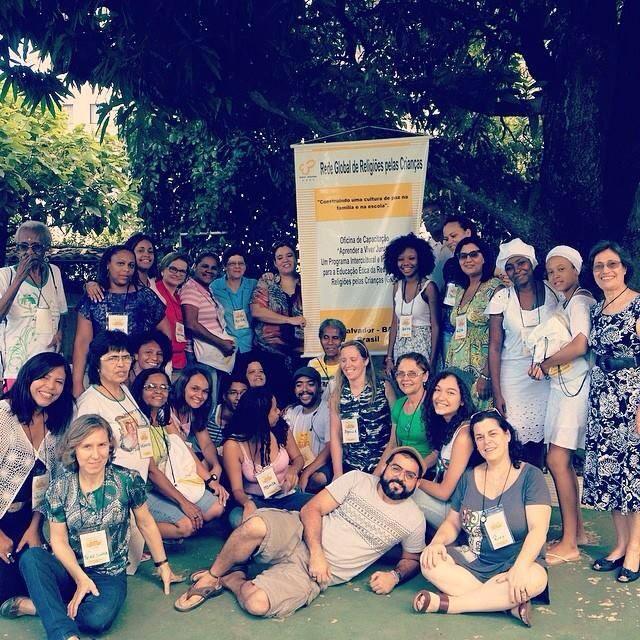The fourth GNRC workshop of the Learning to Live Together Programme in Brazil took place in Salvador, in the state of Bahia, between 4 – 8 June 4 2014. Seven institutions representing different religious backgrounds participated. The workshop aimed to put into practice LTLT as well as in introducing a pilot project for the Strengthening Families Programs.
 The seven institutions participating stated, “We are an inter-institutional group for the education of children and youth. Our aim is to help nurture and develop individuals to become key players in contributing to the education and promotion of citizenship, human rights and faith building; at the same time respecting each others’ religious and cultural backgrounds.”
The seven institutions participating stated, “We are an inter-institutional group for the education of children and youth. Our aim is to help nurture and develop individuals to become key players in contributing to the education and promotion of citizenship, human rights and faith building; at the same time respecting each others’ religious and cultural backgrounds.”The organizations outlined that they work with children and youth in vulnerable situations. The family is their biggest challenge as many of them are unstructured and violence against children is a rule rather than an exception. Violence in the family main arises from a culture of machismo, aggravated by the presence of drugs and violence.
Drugs, family violence, religious intolerance, and racism were some of the issues that were mostly discussed during the workshop, as the most prevalent causes of violence against children. Drugs took a central stage as participants agreed that treating its consumption must become a public health issue. On the other hand, there was a strong belief in helping to create a nurturing and protective circle around the child in order to secure a good upbringing.
Based on the issues described by the participants, concepts and methodologies from the Learning to Live Together were used to introduce an alternative to the lives of children and youth. The participants discussed and reflected on spiritual values and the necessity to nurture spirituality in children and youth today. Young participants description of spirituality brought to light some interesting aspects of their viewpoint.
The participants worked on practical exercises in preparing action programs based on the Learning to Live Together Programme, and practiced their faciitation skills. All agreed on the implementation of the LTLT as well as implementing the World Day of Prayer and Action for Children. Participants agreed on creating communities of practice on the Learning to Live Together to continue building the GNRC, and nominated an adult and youth participant to follow on the implementation of the agreements made.
Special thanks to the trainers, Ms Mercedes Roman, Ms Rivy Plapler Tarandach, Ms Teresinha Dorigon and Mr Glauco Filho, and the GNRC-Brazil for organizing the workshop.

